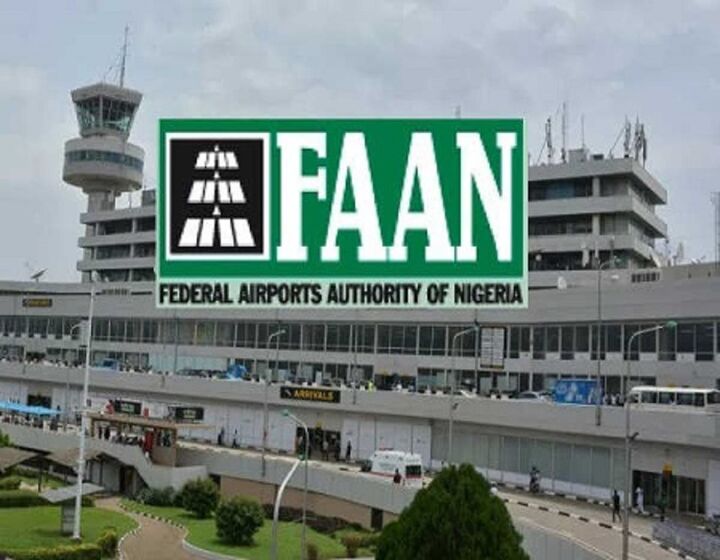The Federal Airports Authority of Nigeria (FAAN) has announced plans to implement cashless payment systems at the Murtala Muhammed International Airport (MMIA), Lagos, and the Nnamdi Azikiwe International Airport (NAIA), Abuja, as part of its modernization drive to enhance transparency, accountability, and efficiency in airport operations. The initiative is expected to kick off before the end of the year and will serve as a pilot phase for a nationwide rollout.
According to FAAN management, the adoption of cashless transactions will align the nation’s airport operations with global best practices, reduce leakages in revenue collection, and improve the ease of doing business at Nigeria’s two busiest airports. The initiative will cover services such as car park tolls, lounge access, cargo charges, and other non-aeronautical revenue sources. Travelers and airport users will be required to make payments through Point-of-Sale (PoS) machines, mobile transfers, and online platforms instead of using physical cash.

Officials explained that the reform is aimed at curbing corruption and revenue mismanagement, which have long plagued airport operations in Nigeria. With digital payment systems, FAAN expects to build a more transparent financial framework that will not only enhance public trust but also optimize revenue generation for reinvestment in infrastructure and service delivery. The cashless policy will also limit the risks associated with cash handling, including theft and other forms of financial malpractice.
The Director of Finance and Accounts at FAAN noted that introducing cashless systems in Lagos and Abuja first was a strategic decision. These two airports handle the highest passenger traffic in Nigeria and are considered gateways into the country. Lessons from the pilot phase will be used to refine the system before extending it to other airports, including Port Harcourt, Kano, and Enugu.
A key benefit of the initiative, according to FAAN, is the anticipated improvement in customer experience. Travelers will enjoy faster processing times at car parks and other service points, reducing queues and delays associated with cash payments. The agency also expects airlines, concessionaires, and other airport stakeholders to benefit from the enhanced efficiency of digital systems.
Industry experts have commended the development, describing it as long overdue in a sector that contributes significantly to Nigeria’s economy. They noted that while most global airports transitioned to digital and cashless platforms years ago, Nigerian airports had lagged behind due to infrastructure and policy challenges. By embracing digital payments, FAAN is signaling its readiness to position Nigeria’s airports as globally competitive hubs.
However, stakeholders have also raised concerns about the readiness of Nigeria’s digital infrastructure to support the shift. With issues such as unreliable internet connectivity, network downtimes, and cybersecurity threats, experts warned that proper safeguards must be put in place to ensure smooth implementation. FAAN has responded by assuring the public that it is working with reputable financial service providers and technology partners to guarantee seamless, secure, and reliable transactions.
The cashless initiative is also in line with the Federal Government’s broader push for financial inclusion and a digital economy. By reducing the reliance on cash at strategic facilities like airports, the policy is expected to encourage wider adoption of digital financial services across the population. Government officials have emphasized that the reform will not only modernize Nigeria’s aviation sector but also support the Central Bank of Nigeria’s drive toward a cashless economy.
Passengers have expressed mixed reactions to the announcement. While many frequent flyers welcomed the move as a step toward efficiency, some expressed concerns about potential disruptions during the transition phase, especially for travelers who are not digitally literate or lack access to reliable banking services. FAAN has said it will set up help desks and awareness campaigns at the airports to assist passengers during the rollout.
In addition to customer education, FAAN plans to introduce training programs for airport staff and concessionaires to ensure that they adapt quickly to the new system. The agency stressed that the success of the initiative will depend on cooperation from all stakeholders, including passengers, airlines, ground handlers, and service providers.
The implementation of cashless payments at Lagos and Abuja airports is part of FAAN’s wider modernization agenda, which also includes upgrading terminal facilities, improving security systems, and enhancing operational efficiency. By digitizing payments, FAAN hopes to unlock new revenue streams that can be channeled into infrastructure development, particularly at smaller airports that require urgent upgrades.
Looking ahead, analysts believe the success of the cashless initiative could set the stage for more ambitious reforms in Nigeria’s aviation sector. A fully digitalized airport ecosystem, they argue, would not only improve revenue transparency but also enhance Nigeria’s chances of becoming a regional aviation hub.
The move comes at a time when the aviation industry is under pressure to recover from recent challenges, including foreign exchange constraints, rising operating costs, and declining passenger traffic. With cashless payments, FAAN is betting on a reform that could improve efficiency, increase investor confidence, and boost Nigeria’s global aviation standing.
Support InfoStride News' Credible Journalism: Only credible journalism can guarantee a fair, accountable and transparent society, including democracy and government. It involves a lot of efforts and money. We need your support. Click here to Donate
